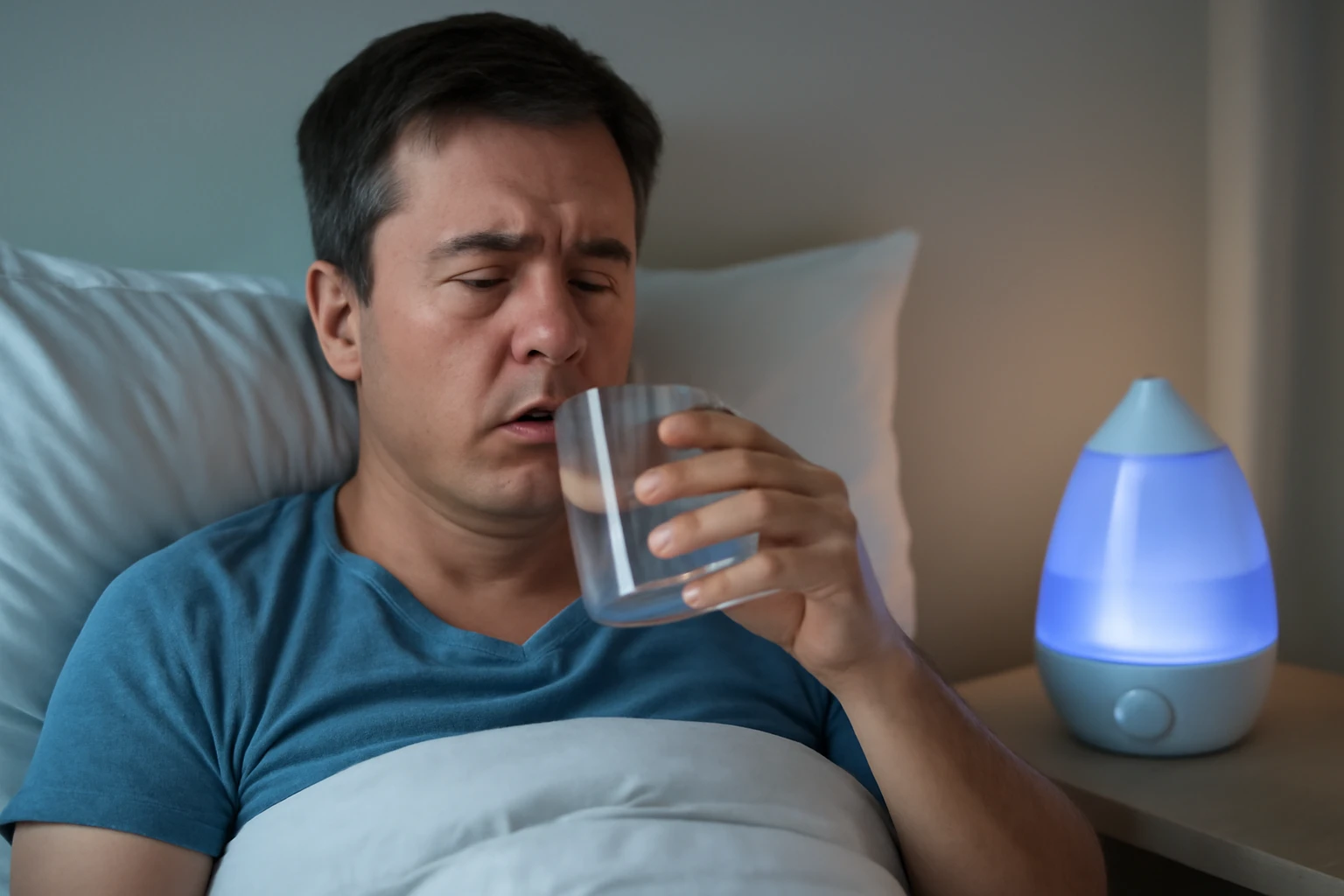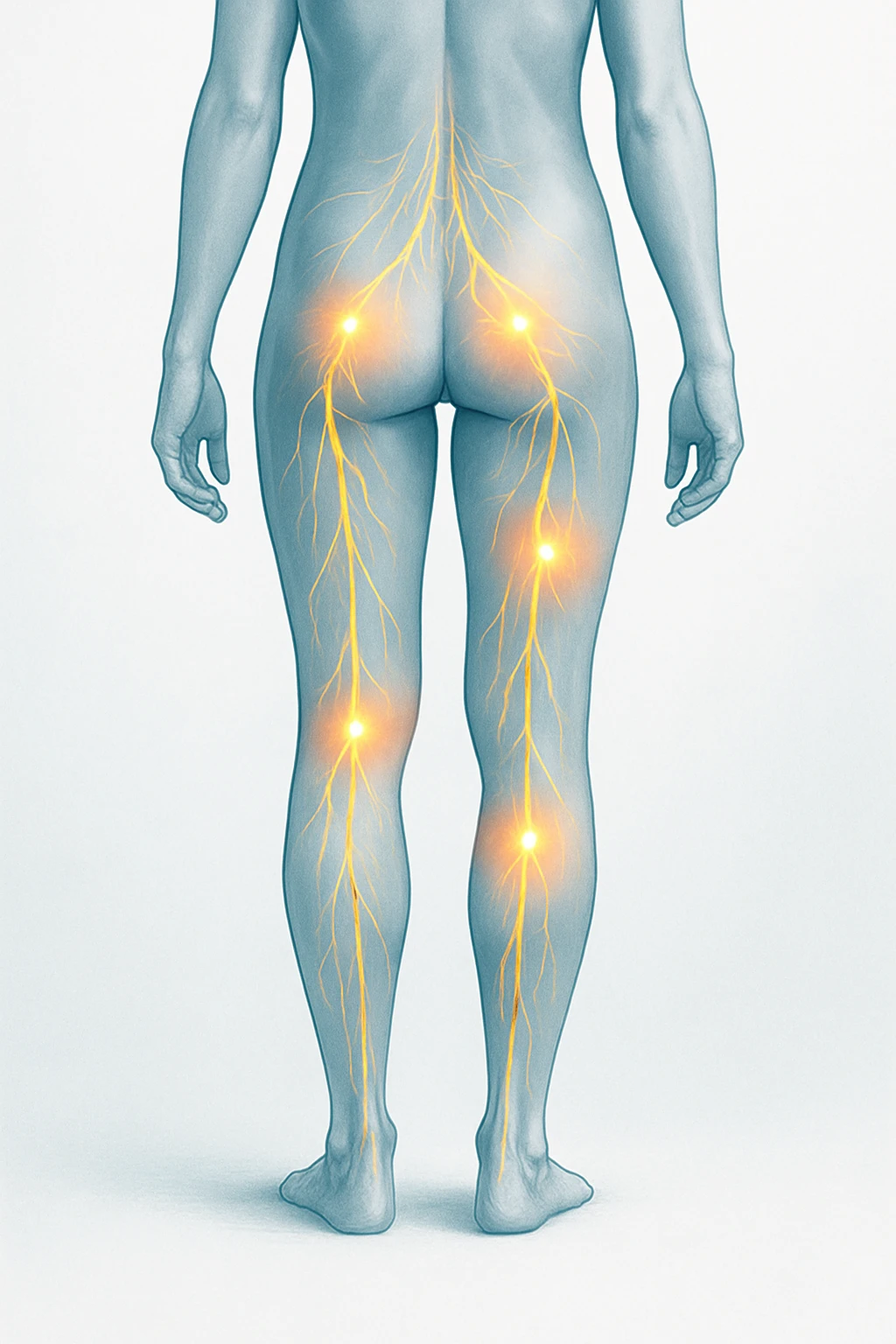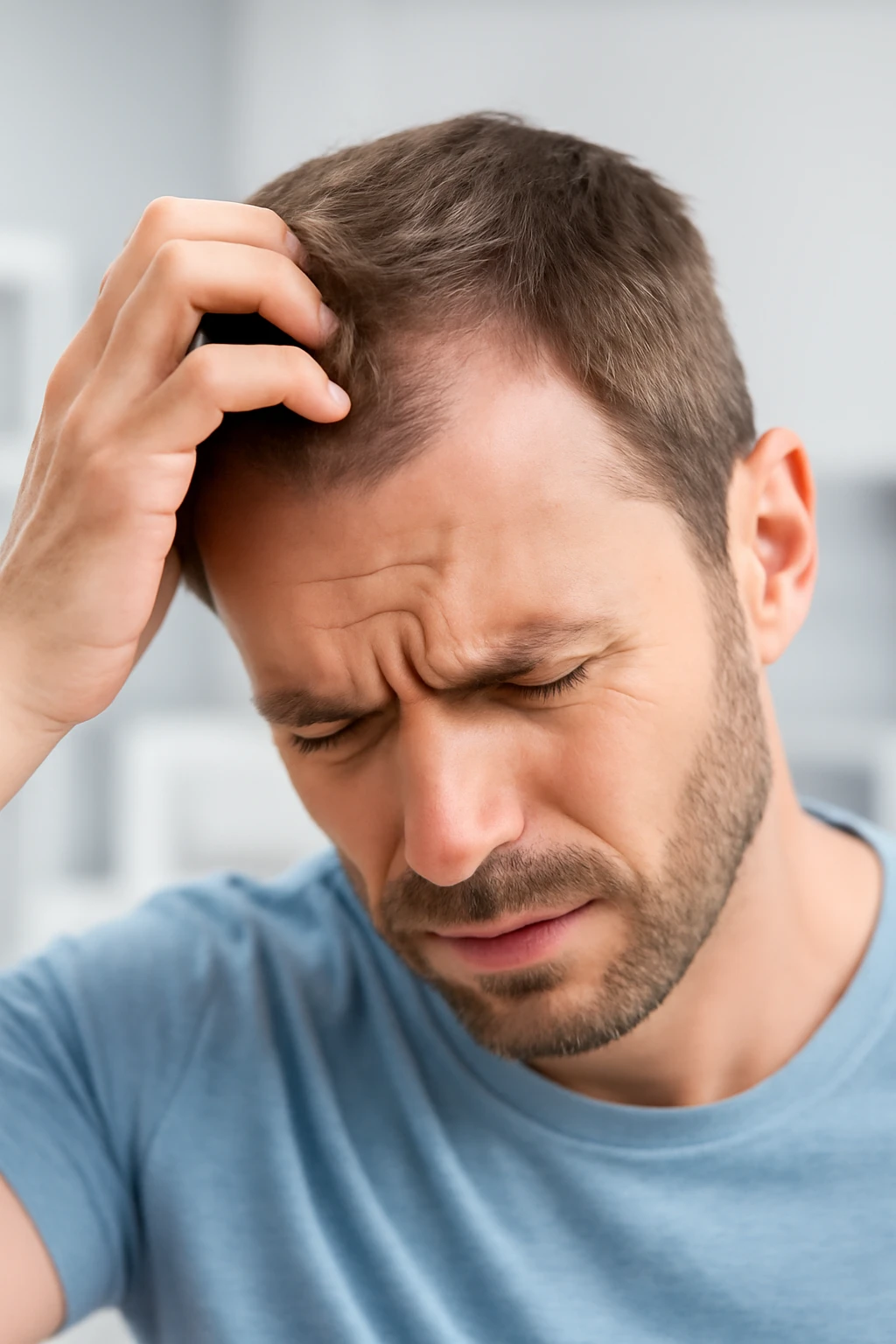How to Prevent and Treat Dry Mouth at Night
Dry Mouth at Night: Causes, Symptoms, and Treatments
What is Dry Mouth at Night?
Dry mouth at night, also known as nocturnal xerostomia, is the sensation of dryness in the mouth that typically occurs during sleep. This condition is caused by reduced saliva production, as the body’s natural salivary flow decreases while resting. Saliva plays a key role in keeping the mouth moist, aiding in digestion, and preventing infections. During sleep, reduced saliva production can lead to discomfort, difficulty swallowing, and speaking upon waking.
Though dry mouth can occur at any time, it is more common at night due to the circadian rhythm, which reduces saliva secretion during rest. For those already prone to dry mouth due to underlying conditions like medication use or dehydration, the symptoms can worsen during sleep, impacting comfort and quality of life.
- Reduced salivation during sleep: Decreased saliva production while resting.
- Body’s circadian rhythm: The body’s natural cycle contributes to reduced saliva flow at night.
- Health factors: Conditions like dehydration or medication use can worsen symptoms.
Common Causes of Dry Mouth at Night
Medication Side Effects
Many medications can cause reduced saliva production, a common cause of dry mouth at night. Antihistamines, blood pressure medications, and certain antidepressants interfere with the salivary glands’ ability to produce saliva. This results in dry mouth, especially while resting or sleeping, leading to discomfort and increased risk of oral health issues like tooth decay and gum disease.
Health Conditions Impacting Saliva Production
Health conditions such as Sjögren’s syndrome, diabetes, and dehydration can contribute to dry mouth at night. Sjögren’s syndrome, an autoimmune disorder, primarily affects the salivary glands, reducing saliva production. Poorly controlled diabetes can cause dehydration, which also reduces saliva. Dehydration from insufficient fluid intake or illnesses like fever can exacerbate symptoms.
Age and Dry Mouth
As people age, changes in saliva production become more common. Although not a normal part of aging, older adults may experience decreased salivary flow. This can be attributed to aging-related changes in gland function, as well as a higher likelihood of taking medications that cause dry mouth. Age-related conditions such as chronic health problems and dehydration can further contribute to dry mouth, especially at night.
- Medication side effects: Antihistamines, blood pressure medications, and antidepressants can decrease saliva production.
- Health conditions: Sjögren’s syndrome, diabetes, and dehydration may worsen dry mouth.
- Age and salivary function: Aging can reduce salivation, leading to dry mouth at night.
Symptoms and Impact of Dry Mouth at Night
Physical Symptoms
Dry mouth at night often presents with difficulty chewing, swallowing, and speaking. Individuals also commonly experience a dry, sticky feeling in the mouth, which may make tasting food difficult. These symptoms are especially noticeable at night when saliva production is naturally reduced, leaving the mouth feeling uncomfortably dry upon waking, which makes daily activities more challenging.
- Difficulty chewing, swallowing, and speaking: These symptoms are linked to reduced saliva production at night.
- Dry, sticky mouth: The sensation of dryness may make it harder to taste food and causes discomfort.
- Worsening symptoms during sleep: Reduced saliva production at night can leave the mouth feeling dry upon waking.
Impact on Oral Health
Dry mouth increases the risk of serious oral health problems. Insufficient saliva reduces the mouth’s ability to neutralize acids, wash away food particles, and fight bacteria. This can lead to a buildup of plaque, increasing the risk of tooth decay, gum disease, and oral infections. Without adequate saliva, the mouth becomes more prone to irritation, sores, and infections, which may cause long-term damage if left untreated.
Psychological and Quality of Life Effects
Beyond physical discomfort, dry mouth at night can significantly affect quality of life. The discomfort caused by a dry mouth can disrupt sleep, leading to fatigue, irritability, and reduced well-being. Anxiety or self-consciousness about the condition, especially if it affects speaking or swallowing, can further diminish quality of life. Addressing dry mouth is important for both physical and emotional health.
Managing and Treating Dry Mouth at Night
At-Home Strategies
Several home remedies can help alleviate dry mouth symptoms at night. Using a humidifier in the bedroom adds moisture to the air, preventing the mouth from drying out during sleep. Staying hydrated is also essential for maintaining saliva production. Drinking water before bed and keeping a glass of water nearby can help. Additionally, practicing good oral hygiene by brushing and flossing regularly can reduce bacterial buildup in the mouth, which is more likely to occur when saliva is low.
- Humidifier: Adds moisture to the air, reducing nighttime dryness.
- Hydration: Drinking water throughout the day and before bed supports saliva production.
- Oral hygiene: Regular brushing and flossing help maintain oral health and reduce bacteria buildup.
Saliva Substitutes and Medications
Saliva substitutes can help manage dry mouth by mimicking the natural lubricating properties of saliva. Available over-the-counter in sprays, gels, or rinses, these products provide relief from dryness. For more persistent cases, prescription medications like pilocarpine may stimulate saliva production. It’s essential to consult with a healthcare provider to determine the best treatment based on individual needs.
When to Consider Professional Treatment
If dry mouth persists or significantly affects your quality of life, consider professional treatment. A dentist or doctor can assess the condition and recommend specific treatments, including fluoride treatments or prescription mouthwashes. In some cases, advanced treatments such as salivary gland stimulation may be necessary. Additionally, it is important to rule out underlying health conditions like diabetes or autoimmune diseases such as Sjögren’s syndrome.
Preventing Dry Mouth at Night
Lifestyle Modifications
Making certain lifestyle changes can significantly reduce the likelihood of developing dry mouth at night. Avoiding tobacco and alcohol is one of the most effective steps you can take. Both tobacco and alcohol can reduce saliva production, making your mouth more likely to feel dry, especially at night. Additionally, some medications, such as antihistamines and decongestants, can contribute to dry mouth. If you are taking medications that may be affecting your saliva production, discuss alternatives with your healthcare provider.
- Avoid tobacco and alcohol: Both can reduce saliva production, increasing the risk of dry mouth at night.
- Check your medications: Some drugs, like antihistamines and decongestants, can contribute to dry mouth.
Maintaining Hydration and Oral Health
Staying hydrated throughout the day is crucial in preventing dry mouth, particularly at night. Drinking water regularly helps maintain your saliva production, so be sure to drink enough fluids, especially before bed. In addition to hydration, maintaining good oral hygiene is key. Brushing your teeth twice daily, flossing, and using an antimicrobial mouthwash can help reduce the risk of oral infections, tooth decay, and gum disease, which are more common when saliva production is low.
- Hydrate regularly: Drink water throughout the day to support saliva production, especially before bed.
- Practice good oral hygiene: Brush, floss, and use antimicrobial mouthwash to reduce the risk of oral health issues.
Preventing Dry Mouth at Night
Lifestyle Modifications
Making certain lifestyle changes can significantly reduce the likelihood of developing dry mouth at night. Avoiding tobacco and alcohol is one of the most effective steps you can take. Both tobacco and alcohol reduce saliva production, making your mouth more likely to feel dry, particularly at night. Additionally, some medications, such as antihistamines and decongestants, can contribute to dry mouth. If you are taking medications that may be affecting your saliva production, discuss alternatives with your healthcare provider.
- Avoid tobacco and alcohol: Both can reduce saliva production, increasing the risk of dry mouth at night.
- Check your medications: Certain drugs, such as antihistamines and decongestants, can contribute to dry mouth.
Maintaining Hydration and Oral Health
Staying hydrated throughout the day is crucial in preventing dry mouth, especially at night. Drinking water regularly helps maintain saliva production, so be sure to drink enough fluids, particularly before bed. In addition to hydration, maintaining good oral hygiene is key. Brushing your teeth twice daily, flossing, and using an antimicrobial mouthwash can help reduce the risk of oral infections, tooth decay, and gum disease, which are more common when saliva production is low.
- Hydrate regularly: Drink water throughout the day to support saliva production, especially before bed.
- Practice good oral hygiene: Brush, floss, and use antimicrobial mouthwash to reduce the risk of oral health issues.
When to Seek Medical Help
Indications for Professional Help
If dry mouth at night persists or worsens despite efforts to manage it at home, it may be time to consult a healthcare professional. Signs that suggest you should seek medical help include persistent symptoms such as a dry, sticky feeling in the mouth every night, difficulty speaking or swallowing, and discomfort that interferes with your daily activities. If you notice sores, gum irritation, or increased tooth decay, it’s important to address these issues early. These complications may indicate that your dry mouth is not only persistent but also affecting your oral health and overall well-being.
- Persistent dry mouth: The sensation of dryness every night that does not improve with home remedies.
- Difficulty speaking or swallowing: When dry mouth interferes with regular activities.
- Oral complications: Sores, gum irritation, or increased tooth decay.
Specialist Care and Treatment Options
When you visit a doctor or dentist for persistent dry mouth, they will assess your symptoms and determine the best course of treatment. A dentist may check for signs of oral infections or tooth decay and offer preventive care or treatments such as fluoride treatments or prescription mouthwashes. If necessary, a doctor may prescribe medications like pilocarpine to stimulate saliva production. In some cases, seeing a specialist in oral medicine may be required to further investigate underlying conditions such as autoimmune diseases or other systemic causes. Rest assured, with professional care, most cases of dry mouth can be managed effectively, allowing you to regain comfort and protect your oral health.
- Medication side effects, including antihistamines, can reduce saliva production, leading to dry mouth at night.
- Health conditions like Sjögren’s syndrome, diabetes, and dehydration contribute to dry mouth at night.
- Dry mouth can result from aging, though it is not considered a normal part of the aging process.
- Common symptoms of dry mouth at night include difficulty chewing, swallowing, and speaking.
- Dry mouth causes a sticky feeling in the mouth, making it hard to taste food.
- Saliva substitutes can help manage dry mouth symptoms at night.
- Using a humidifier at night can alleviate dry mouth symptoms during sleep.
- Maintaining good oral hygiene and staying hydrated are essential for managing dry mouth at night.
- Avoiding tobacco and alcohol can help prevent dry mouth at night.
- Dry mouth increases the risk of tooth decay and oral infections.
Frequently Asked Questions about Dry Mouth at Night
- What are the main causes of dry mouth at night? Dry mouth at night is commonly caused by reduced saliva production during sleep, often influenced by medication side effects, health conditions like Sjögren’s syndrome and diabetes, or aging.
- How can dry mouth affect my oral health? Dry mouth can increase the risk of tooth decay, gum disease, and oral infections since saliva plays a key role in neutralizing acids and washing away bacteria.
- Are there lifestyle changes that help prevent dry mouth at night? Yes, avoiding alcohol and tobacco, staying hydrated throughout the day, and maintaining good oral hygiene can significantly help prevent dry mouth at night.
- Can dry mouth be a sign of a serious health issue? In some cases, persistent dry mouth can indicate underlying health issues like autoimmune disorders or poorly controlled diabetes. It’s important to seek professional help if symptoms persist.
- How do I treat dry mouth at night? At-home strategies such as using a humidifier, drinking water before bed, and using saliva substitutes can help manage symptoms. Consulting with a healthcare provider may be necessary for more severe cases.
- When should I see a doctor for dry mouth at night? If dry mouth becomes chronic, causes difficulty swallowing or speaking, or leads to oral health complications like sores or tooth decay, it’s time to seek medical help.
- Can dry mouth at night affect sleep? Yes, dry mouth can disrupt sleep, leading to discomfort, difficulty swallowing, and even poor sleep quality, which in turn affects overall well-being.
- Are there any natural remedies for dry mouth at night? Staying hydrated, using a humidifier, and practicing good oral hygiene are simple, natural methods that can help alleviate dry mouth symptoms at night.













